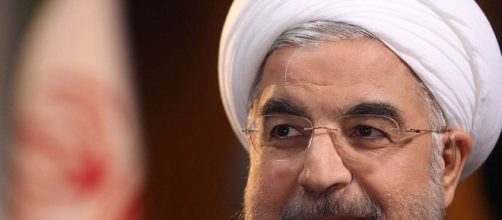Iranian dissidents have been launching widespread protests in New York City ahead of Iranian President Hassan Rouhani's visit to the United Nations. Rouhani is gathering with other world leaders at the September Summit at the U.N. headquarters in New York.
The summit will mark one of the biggest meetings of world leaders since Iran signed deals with the United States and other world powers to limit its nuclear ambitions last year. Since then, numerous sanctions against Iran have been rolled back, but tensions remain high. Iran has been expanding its control in Iraq, and has been an ardent supporter of the Assad regime in Syria.
Iran has also been accused of fueling the on-going civil war in Yemen.
While Iran has been trying to reintegrate itself with the global community, many remain skeptical. Thousands of protesters, most of them Iranian-Americans, took to the streets to denounce Rouhani, and tensions with foreign governments, including the United States and United Kingdom, remain high.Further, the German government and others have also accused Iran of violating the treaty.
Leading Iranian dissident group denounces Rouhani
Rouhani swept into power as a supposed moderate, promising gradual reform, economic growth, and a lighter hand than the previous regime. However, his track record while in office is questionable, with executions seeming to accelerate under Rouhani's leadership, and oppression remaining wide spread.
The NCRI claims that at least 2,000 Iranians, many of them juveniles, have been executed under Rouhani's regime. This claim is backed up by reports from Amnesty International, which in July claimed that Iran had executed nearly 700 people in just six months.The protesters also marked the 1988 mass executions of Iranian dissidents, many of them hailing from the Mojahedin-e-Khalq, and other dissident groups. It is believed that as many as 30,000 people were executed.
UK prime minister pleads for release of citizen
At the United Nations, British Prime Minister Theresa May met with Rouhani, which much of the conversation focusing on the imprisonment of Nazanin Zaghari-Ratcliffe, a British citizen currently jailed in Iran.
The Iranian government has accused Zaghari-Ratcliffe of spying on Iran.
Just last year, the British government re-established official diplomatic relations with the Iranian regime for the first time since the embassy siege. Yet, even as relations have been reestablished, Iran continues to persecute British and other foreign citizens, often on questionable charges with little to no evidence of wrong doing.
Zaghari-Ratcliffe, a 37-year-old British mother, worked from the charitable arm of Thomson-Reuters in Iran. She was arrested, charged, and found guilty, although the exact accusations remain unknown. It is believed that “spying” was one of the charges she was found guilty for. She has been sentenced to five years in jail.

